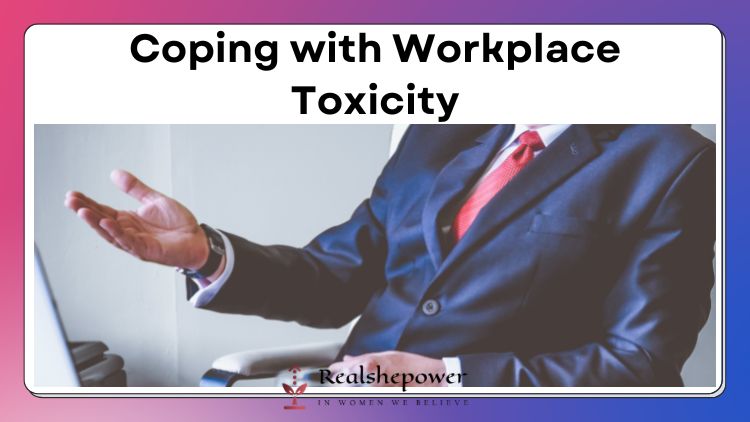Learn To Cope With Workplace Toxicity In 5 Easy Steps


As working professionals, the workplace is one of our most important social environments. However, sometimes the work environment can feel like a battlefield — everyone is fighting for their own piece of the pie, and it becomes very easy to find yourself in a toxic situation. In this article, we present coping strategies that you can use to deal with workplace toxicity and challenging co-workers.
What is a toxic workplace environment?
Toxic Working environments can make you feel like you’re being treated like a cog in the machine. You might have to deal with abuse from your boss and co-workers, as well as from customers. It can be characterized by the workplace being highly stressful and physically dangerous. When employees don’t feel valued and respected, they express a lack of consideration from their employers. When there’s favouritism and nepotism in the workplace, it’s toxic.
A toxic workplace is one in which stress is praised, working on weekends is normalised, and working extra hours in the office is celebrated. An employee is almost never given credit for her work, but mistakes are pointed out loud and clear. A toxic workplace exists when the supervisor has a short fuse. S/he insults you, labels you as worthless, and sometimes even doubts your degree and merit. Does it sound like a place you may be familiar with? Or does it sound like a company you presently work for? Have you been assured that such a working atmosphere is completely normal? Do you know what I mean? There will be better days; it’s normal.
Let me assure you, it isn’t. This is known as a “toxic work environment.”
5 Ways to Avoid the Workplace Toxicity
When you’re surrounded by people who don’t care about their work, it can be tempting to make the same mistake. It’s important to speak up and stand up against toxic coworkers, but it’s just as important to control your own behaviour as well. Here are five ways to avoid toxicity in your environment:
- Be self-aware of your own personality and how that impacts others.
- Practice self-care — put yourself first before others.
- Keep a strong sense of who you are and have confidence in what you do.
- Talk to your manager about how you’re feeling.
- Set boundaries with colleagues who are being toxic.
If you suddenly find yourself in a toxic work environment, there are some things you can do to try and avoid these kinds of situations entirely. For example, if tensions arise in the office, take some time away from the situation to consider what is best for everyone involved. Don’t react, take some time out, think and then respond.
If you’re someone who wants to ignore the toxicity around and focus on your career then the following steps are curated for you.
Ways to Progress Your Career While Coping with Workplace Toxicity
1) Seek out opportunities for leadership;
2) Take risks and share personal experiences in the workplace;
3) Get feedback from colleagues and focus on how best to grow professionally;
4) Ask for help when needed;
5) Find mentors to boost your career;
6) Avoid sitting in silos most of the day and seek out other ways to learn about what’s going on outside of that realm, such as reading a magazine or listening to informative podcasts;
7) Don’t get discouraged by people who don’t understand your work and try your best not to let them ruin your moods – after all, they’re human too and they have their own problems
9) Don’t put yourself down or berate yourself every time you make a mistake.
Concluding Remark
There is no easy solution to the toxicity in the workplace. As with anything, it is best to try and remove yourself from the toxic environment as much as possible and get into a better one. It is important to remember that your feelings are valid and not to be dismissed by co-workers or bosses. In order to cope with toxicity in the workplace, some simple steps that may help include talking to a supervisor, taking breaks, setting boundaries and limits, keeping accurate records of what triggers you, and expressing your feelings openly with trusted colleagues.
